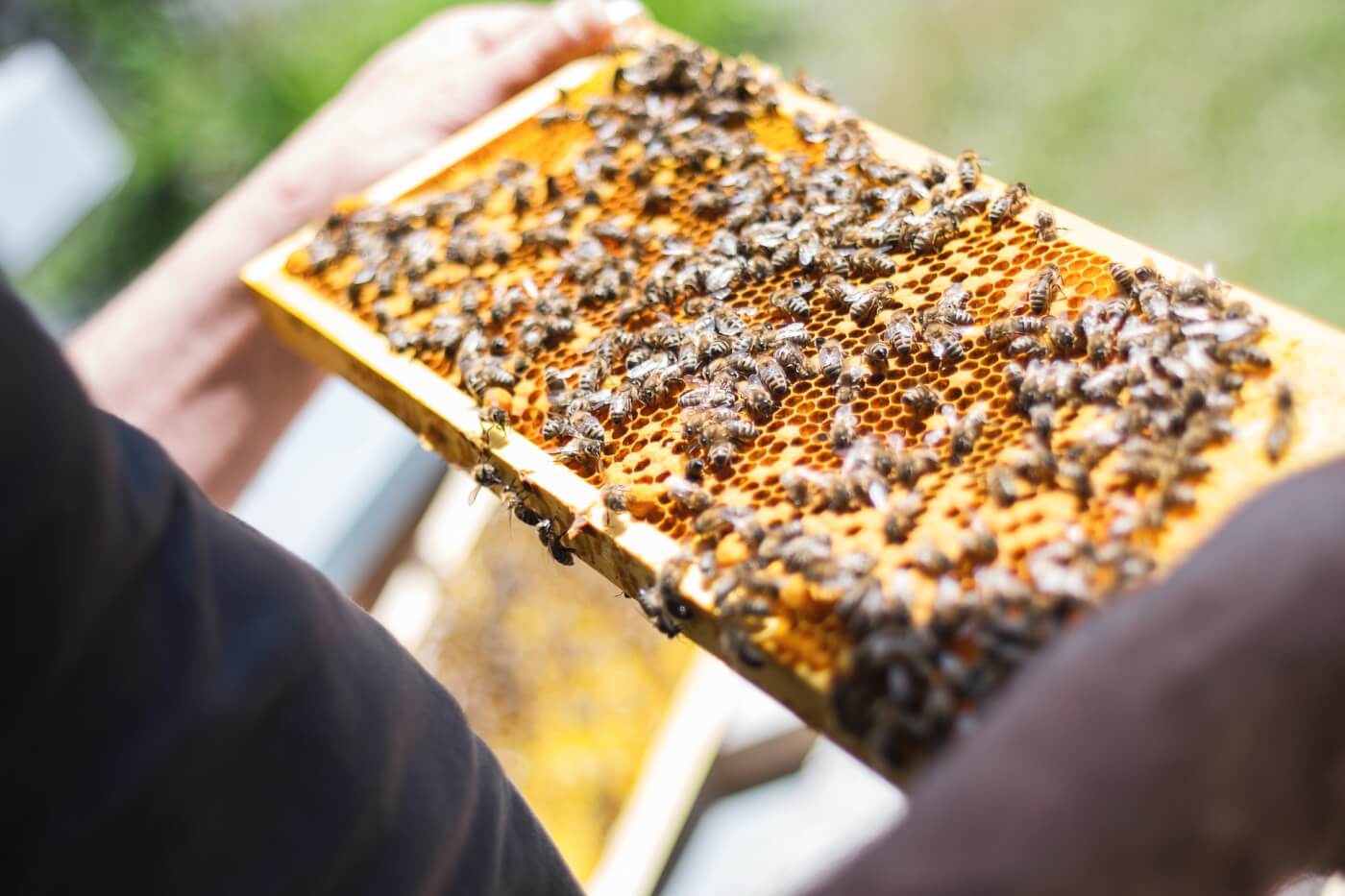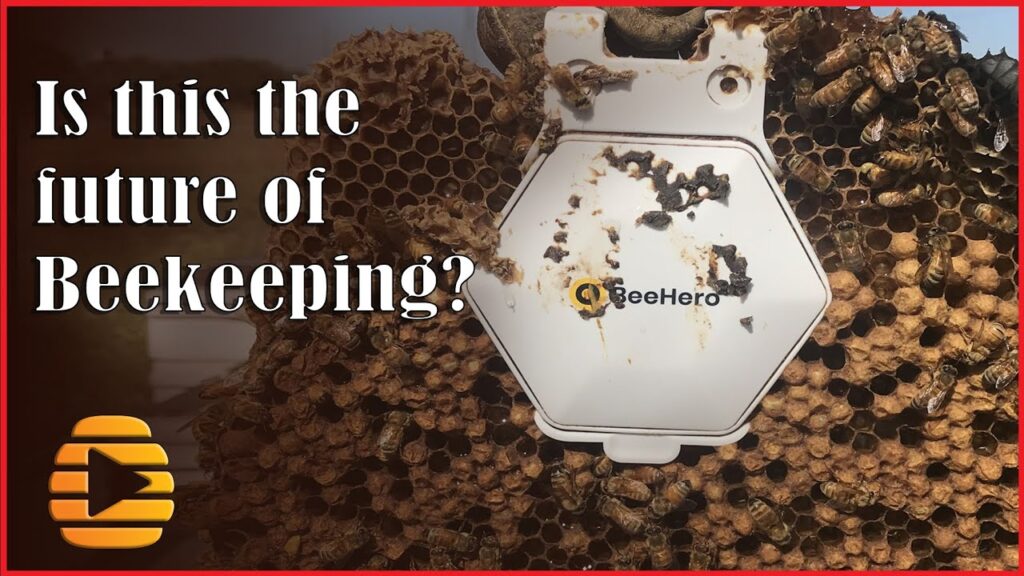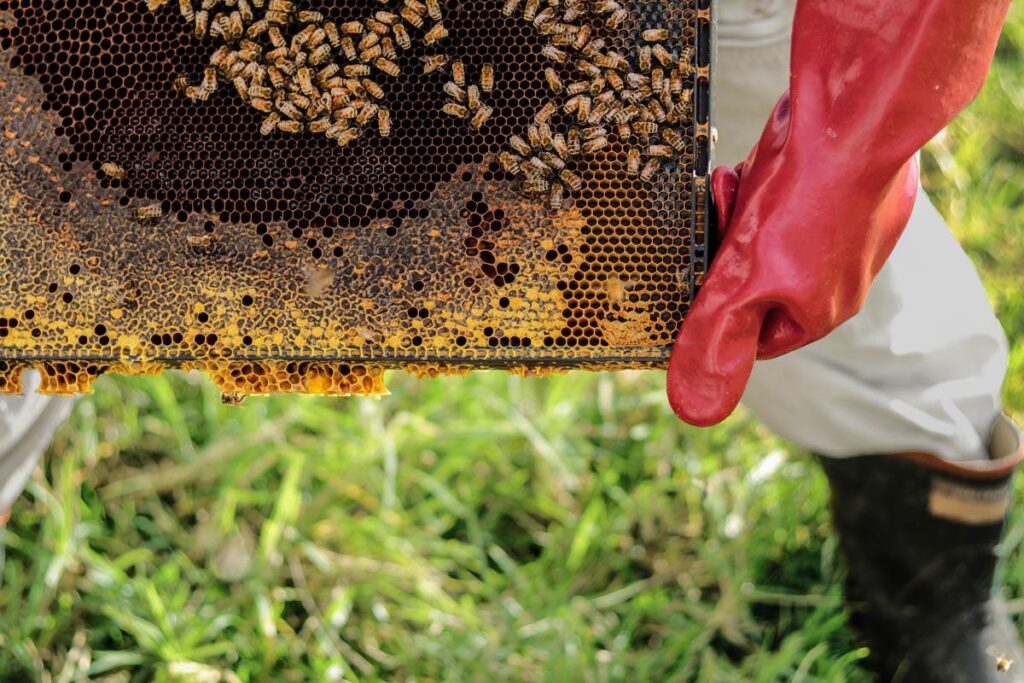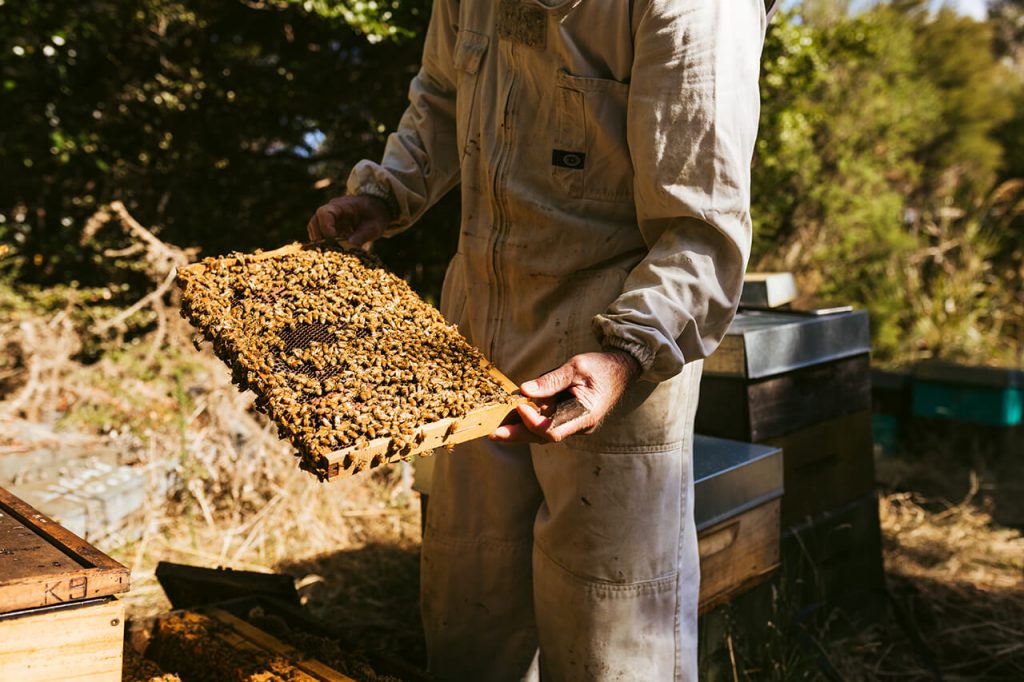
Imagine a world without bees. No buzzing in the flowers, no honey on your toast, and no pollination of our beloved crops. It’s a bleak picture, isn’t it? Well, thankfully, beekeeping is here to stay, but what does the future hold for this essential practice? With increasing concerns about environmental sustainability and bee population decline, the future of beekeeping is at a pivotal moment. In this article, we will explore the innovative solutions, promising technologies, and collaborative efforts that are shaping the future of beekeeping, ensuring the survival of these incredible pollinators for generations to come.
Impact of Climate Change on Beekeeping
Climate change is having a significant impact on beekeeping around the world. Changes in temperature and weather patterns are affecting the behaviors and natural instincts of bees, making it harder for beekeepers to manage their colonies. Bees rely on specific temperature ranges for their brood rearing and foraging activities, but with rising temperatures, these ranges are being disrupted. This can lead to a decrease in bee population and productivity.
Changes in Bee Behavior
Climate change is causing shifts in bee behavior, including altered foraging patterns, changes in mating habits, and disruptions in the timing of their life cycles. Bees are struggling to adapt to these changes, as their internal clocks are tuned to specific seasonal cues that may no longer be reliable. For example, flowers may bloom earlier or later than usual, affecting the availability of nectar and pollen. This not only impacts the bees’ ability to find food but also affects their ability to synchronize their activities within the hive.
Effects on Honey Production
Climate change is also affecting honey production, as it can disrupt the quantity and quality of nectar and pollen available to bees. Changes in precipitation patterns can lead to droughts or floods, both of which can reduce the availability of food sources for bees. Moreover, extreme weather events such as storms or heatwaves can destroy bee colonies and their hives, resulting in a significant loss of honey production. The rising temperatures can also affect the composition and taste of the honey produced, impacting its market value.
Challenges in Beekeeping Practices
Beekeepers are facing numerous challenges due to climate change. The unpredictability of weather patterns makes it difficult for beekeepers to plan and manage their colonies effectively. Increased heatwaves and droughts can weaken the bees and make them more susceptible to diseases and pests. Additionally, the changing flowering patterns of plants can lead to a shortage of forage, requiring beekeepers to supplement their bees’ diet, which adds additional costs.
Advancements in Beekeeping Technology
To overcome the challenges posed by climate change and ensure the future of beekeeping, innovative advancements in technology are being introduced. These advancements aim to enhance beekeeping practices, improve bee health, and increase honey production.
Smart Hive Technology
Smart hive technology involves the use of sensors and monitoring devices within beehives to gather data on various hive parameters. These sensors track factors such as temperature, humidity, hive weight, and activity levels. This real-time data allows beekeepers to monitor the health and behavior of their colonies remotely. By analyzing the collected data, beekeepers can make informed decisions on hive management, identifying potential issues before they escalate.
Drone Beekeeping
drone beekeeping is an emerging technology that involves using drones to assist in hive management. Drones equipped with cameras and sensors can survey bee colonies and gather information on bee behavior, hive conditions, and even monitor for pests and diseases. This technology allows beekeepers to spot issues more efficiently and take appropriate actions, ultimately enhancing the health and productivity of the hives.
Precision Beekeeping Tools
Advancements in precision beekeeping tools are helping beekeepers improve their management practices. These tools include precision hive frames, which allow for easy inspection and extraction of honey without disturbing the entire hive. Precision feeders and medication distribution systems help ensure accurate and targeted medication administration. These tools not only make beekeeping more efficient but also minimize stress on the bees, resulting in healthier colonies.
Sustainable Beekeeping Practices
In the face of environmental challenges and the need to preserve bee populations, sustainable beekeeping practices are becoming increasingly crucial. These practices focus on minimizing the negative impact of beekeeping on the environment while maintaining viable and productive colonies.
Natural Pest Control Methods
Sustainable beekeeping relies on the use of natural pest control methods to combat common hive threats such as Varroa mites and wax moths. These methods include the use of essential oils, organic acids, and biologically-based treatments that are safe for bees and the environment. By minimizing the use of chemical pesticides and adopting sustainable alternatives, beekeepers can protect their colonies and reduce the risk of contaminating honey and other hive products.
Organic Hive Management
Organic hive management involves eliminating the use of synthetic chemicals and antibiotics in beekeeping practices. This approach promotes the use of organic materials, such as organic sugar for feeding bees, organic pollen substitutes, and organic treatments for common bee diseases. Organic hive management ensures the production of honey and other hive products that are free from chemical residues, meeting the growing consumer demand for organic and environmentally-friendly products.
Promoting Biodiversity in Beekeeping Areas
Maintaining biodiversity in beekeeping areas is essential to support healthy bee populations and enhance their foraging opportunities. Beekeepers can promote biodiversity by planting a variety of flowering plants that provide abundant and diverse sources of nectar and pollen throughout the year. Creating pollinator-friendly habitats, such as wildflower meadows or planting native vegetation, can also help attract and sustain a diverse range of pollinators, including bees.
Urban Beekeeping
With the rise of urbanization, beekeeping is increasingly being practiced in urban areas, bringing numerous benefits and challenges.
Rooftop Apiaries
Rooftop apiaries are becoming a popular trend in urban beekeeping. By utilizing unused rooftop spaces, urban beekeepers can create apiaries that take advantage of the available urban flora and contribute to the local honey production. Rooftop apiaries offer the added benefit of reducing the distance that bees need to forage for food, making it easier for them to access diverse sources of nectar and pollen.
Community Beekeeping Projects
Community beekeeping projects involve engaging local communities in beekeeping practices. These projects can be initiated in urban neighborhoods, schools, or community gardens, allowing people to learn about bees, their importance, and the challenges they face. Community involvement in beekeeping fosters a sense of environmental stewardship and helps raise awareness about the impact of bee decline on food security and ecosystems.
Benefits and Challenges
Urban beekeeping offers various benefits, including increased pollination in urban areas, local honey production, and educational opportunities for the community. However, it also presents challenges such as the limited forage availability in urban environments, potential conflicts with local regulations or neighbors, and the increased risk of exposure to pollutants or pesticides. Proper planning, collaboration with local authorities, and educating urban dwellers about the importance of bees can help overcome these challenges and ensure the success of urban beekeeping projects.

Genetic Engineering and Beekeeping
Genetic engineering has the potential to revolutionize beekeeping by addressing challenges such as disease resistance and pollination efficiency. However, it also raises ethical considerations that must be carefully evaluated.
Breeding Disease-Resistant Bees
Genetic engineering techniques can be used to breed bees that are resistant to common diseases, such as Varroa mites or American foulbrood. By identifying and manipulating specific genes, scientists can enhance the bees’ immune systems and reduce their susceptibility to pathogens. Disease-resistant bees not only contribute to the overall health of colonies but also reduce the reliance on chemical treatments, promoting more sustainable beekeeping practices.
Enhancing Bee Pollination Efficiency
Genetic engineering can also be utilized to enhance the pollination efficiency of bees. Scientists can explore ways to modify bee genes that influence foraging behavior, navigation, or innate immune responses to optimize their pollination activities. This can result in increased crop yields and more efficient pollination services, benefiting both beekeepers and agricultural systems.
Ethical Considerations
The application of genetic engineering in beekeeping raises ethical considerations that must be carefully addressed. These considerations include potential unintended consequences on bee health and the environment, concerns about biodiversity loss, and the impact of genetically modified bees on native and wild bee populations. Thorough research, strict regulations, and transparent communication are necessary to ensure responsible genetic engineering practices that prioritize environmental sustainability and bee welfare.
The Role of Beekeeping in Food Security
Beekeeping plays a critical role in ensuring food security by providing essential pollination services and contributing to sustainable food production.
Pollination Services for Agriculture
Bees are one of the most effective pollinators, contributing to the pollination of numerous crops essential for food production. Without adequate pollination, crop yields would significantly decline, jeopardizing global food supplies. Beekeeping helps maintain and enhance pollination services by ensuring the presence of healthy and productive bee colonies that can effectively pollinate crops, leading to abundant harvests.
Utilizing Honey as a Sustainable Food Source
Honey, a natural bee product, serves not only as a sweetener but also as a sustainable food source. Honey is rich in nutrients, antioxidants, and has antimicrobial properties. Incorporating honey into the human diet promotes sustainability by reducing the reliance on artificial sweeteners and supporting local beekeeping communities. Furthermore, honey production contributes to the economic livelihood of beekeepers, particularly in rural areas where beekeeping is a valuable source of income.
Addressing Declining Bee Populations
The decline in bee populations is a global concern with serious implications for food security. Beekeeping plays a crucial role in addressing this issue by providing a controlled and managed environment for bees, reducing the risks they face in the wild. Beekeepers can contribute to bee conservation efforts by implementing sustainable practices, promoting bee habitat preservation, and actively participating in scientific research initiatives aimed at understanding and combating bee decline.

Global Beekeeping Regulations
Global regulations play an essential role in ensuring the well-being of bees, preventing the spread of diseases, and facilitating the trade of honey and hive products.
Import and Export Laws
Import and export laws regulate the movement of bees, honey, and other hive products between countries. These laws are crucial to prevent the introduction and spread of invasive species or diseases that could harm native bee populations and agricultural ecosystems. Strict regulations and quarantine measures help maintain biosecurity and protect the health of bees, ensuring safe trading practices within the global beekeeping industry.
Bee Health Standards
Standards and guidelines focused on bee health help ensure the welfare and proper management of bee colonies. These standards cover areas such as disease prevention, hive hygiene, appropriate use of treatments and pesticides, and colony inspection protocols. Setting and enforcing bee health standards safeguard the health and vitality of bees and promote sustainable beekeeping practices worldwide.
Invasive Species Management
Invasive species pose a significant threat to bee populations and agricultural ecosystems. Global beekeeping regulations play a vital role in preventing the introduction and spread of invasive species that target bees or disrupt pollination processes. By implementing strict measures and monitoring mechanisms, governments can prevent the accidental introduction of invasive species, protecting both bee health and biodiversity.
Creating Awareness and Education
Raising awareness and educating the public about bees and beekeeping is crucial in fostering a sense of responsibility, promoting sustainable practices, and addressing the challenges faced by bees.
Promoting Beekeeping as a Sustainable Hobby
Encouraging beekeeping as a sustainable hobby can help engage individuals in bee conservation efforts and provide a deeper understanding of the importance of bees in our ecosystems. Promotional campaigns, educational workshops, and mentorship programs can inspire individuals to become responsible beekeepers, contributing to the preservation of bee populations and the vital pollination services they provide.
Teaching Beekeeping in Schools and Communities
Integrating beekeeping into educational curricula and community programs is an effective way to educate the younger generation about the value of bees and the challenges they face. By providing hands-on experiences and knowledge about beekeeping, students and community members can develop a broader understanding of the environment, sustainability, and the role that bees play in food security.
Educating the Public on the Importance of Bees
Public education campaigns focused on bee conservation are key to raising awareness about the importance of bees and the threats they currently face. These campaigns can highlight the critical role of bees in food production, biodiversity, and the health of ecosystems. By disseminating accurate and accessible information, the public can become more informed advocates for bee protection and actively contribute to efforts aimed at conserving pollinators.

Integration of Technology and Monitoring
The integration of technology and monitoring systems is revolutionizing the way beekeepers manage their colonies, monitor hive conditions, and collect crucial data for research purposes.
Remote Hive Monitoring
Remote hive monitoring systems allow beekeepers to monitor their hives’ vital parameters without physically disturbing the bees. These systems use sensors and wireless technology to provide real-time information on temperature, humidity, hive weight, and even sound. Remote monitoring enhances hive management efficiency, helps detect potential issues early on, and reduces the stress that traditional hive inspections can impose on bees.
Data Analytics for Bee Health
Data analytics is increasingly used in beekeeping to analyze vast amounts of data collected from hives and bee colonies. By applying statistical and machine learning algorithms to this data, beekeepers can gain valuable insights into bee health, behavior patterns, and environmental impacts. Data analytics can also help predict hive conditions, disease outbreaks, and provide recommendations for optimal hive management practices, ultimately improving bee health and productivity.
Artificial Intelligence in Beekeeping
Artificial intelligence (AI) has the potential to revolutionize beekeeping by automating hive management processes and decision-making. AI-powered systems can process vast amounts of data quickly, identify patterns, and make accurate predictions. AI can be used to develop automated systems for hive maintenance, disease detection, and optimization of pollination services. By leveraging AI technologies, beekeepers can streamline their operations, enhance productivity, and ensure the well-being of their colonies.
Collaboration and Networking in the Beekeeping Community
Collaboration and networking are critical in the beekeeping community to share knowledge, best practices, and research findings, ultimately advancing sustainable beekeeping practices globally.
Sharing Best Practices and Research
Beekeepers from different regions can greatly benefit from sharing their best practices, experiences, and research findings. Collaborative platforms, conferences, and forums enable beekeepers to exchange valuable information, learn about innovative approaches, and collectively address common challenges. Sharing knowledge not only benefits individual beekeepers but also contributes to the development of improved beekeeping techniques and sustainability practices worldwide.
Global Beekeeping Associations
Global beekeeping associations play a crucial role in connecting beekeepers from around the world. These associations facilitate networking, knowledge-sharing, and collaboration among beekeepers, scientists, and industry professionals. They also advocate for bee welfare, promote sustainable beekeeping practices, and contribute to global policies and regulations related to bee health and conservation.
Building Stronger Beekeeping Networks
Building stronger beekeeping networks at the local, regional, and global levels fosters collaboration, resilience, and innovation within the beekeeping community. By establishing partnerships between beekeepers, researchers, policymakers, and other stakeholders, networks can work together to address challenges, exchange information, and support each other in developing sustainable beekeeping practices. Stronger networks also enable more effective responses to emerging threats, such as climate change or new pests and diseases.
In conclusion, the future of beekeeping is intertwined with the challenges and developments discussed in this article. The impact of climate change on bee behavior and honey production requires innovative technologies and sustainable practices to ensure the viability of beekeeping in the face of environmental uncertainties. The integration of advancements in technology, such as smart hive technology and precision beekeeping tools, provides beekeepers with valuable insights and tools to optimize hive management. Sustainable beekeeping practices, including natural pest control methods and the promotion of biodiversity, are essential in protecting bee health and preserving their vital pollination services. Urban beekeeping brings unique opportunities and challenges, while genetic engineering offers potential solutions but requires ethical considerations. Beekeeping’s role in food security is undeniable, as it provides essential pollination services and promotes the utilization of honey as a sustainable food source. Global regulations, awareness, and education are crucial in promoting responsible beekeeping practices and protecting bee populations worldwide. The integration of technology and monitoring systems enables more efficient hive management and data-driven decision-making. Finally, collaboration and networking within the beekeeping community ensure the exchange of knowledge, research, and best practices, fostering innovation and resilience in the face of evolving challenges. By embracing sustainable practices, harnessing technology, and working together, the future of beekeeping holds great promise for the conservation of bees and the preservation of our ecosystems.
